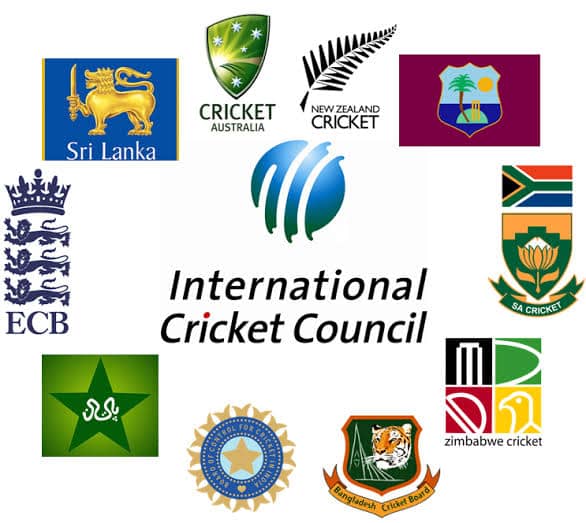Top 10 Richest Cricket Boards in the World

Behind every successful cricket team lies a strong cricket board that manages the affairs of the sport within its jurisdiction. Today we will explore the top 10 richest cricket boards in the world, shedding light on their financial prowess, annual revenue, and contributions to the sport.
Richest Cricket Boards: Top 10 Wealthiest
From the BCCI to the NZC, each board’s financial stability and commercial success underscore its commitment to promoting the growth and development of cricket within its jurisdiction.
1) Board of Control for Cricket in India (BCCI)
The Board of Control for Cricket in India (BCCI) stands tall as the wealthiest cricket board globally, with an estimated net worth of $2 billion and an annual revenue of $919 million.
The BCCI’s financial dominance is attributed to the immense popularity of cricket in India, coupled with lucrative broadcasting deals, sponsorships, and a massive fan base.
The BCCI’s ability to generate substantial revenue has enabled it to invest heavily in infrastructure development, player welfare programs, and grassroots cricket initiatives, cementing its status as a powerhouse in the cricketing world.
2) Cricket Australia (CA)
Cricket Australia (CA) ranks among the wealthiest cricket boards, boasting an estimated net worth of $70 million and an annual revenue of $392 million. With a rich cricketing heritage and a passionate fan base, CA has leveraged its commercial appeal to secure lucrative broadcasting rights deals and sponsorships.
The board’s strategic investments in talent development, high-performance facilities, and marketing initiatives have contributed to its financial success, ensuring the continued growth and prosperity of Australian cricket on the global stage.
3) England and Wales Cricket Board (ECB)
The England and Wales Cricket Board (ECB) is renowned for its financial stability and commercial acumen, with an estimated net worth of $59 million and an annual revenue of $380 million.
As the defender of cricket in England and Wales, the ECB has capitalized on the sport’s popularity to secure lucrative broadcasting contracts, sponsorships, and ticketing revenues.
The board’s investments in infrastructure, grassroots development, and elite player pathways have yielded dividends, maintaining England’s status as a cricketing powerhouse on the international circuit.
4) Pakistan Cricket Board (PCB)
The Pakistan Cricket Board (PCB) ranks among the wealthiest cricket boards, with an estimated net worth of $55 million and an annual revenue of $111 million.
Despite facing challenges such as security concerns and administrative issues, the PCB has successfully monetized Pakistan’s cricketing talent and passionate fan base to attract sponsorships, broadcasting deals, and investments.
The board’s focus on talent development, domestic cricket structures, and international tours has helped sustain its financial viability and promote the growth of cricket in Pakistan.
5) Bangladesh Cricket Board (BCB)
The Bangladesh Cricket Board (BCB) has emerged as a financial powerhouse in international cricket, with an estimated net worth of $51 million and an annual revenue of $110 million.
With cricket enjoying immense popularity in Bangladesh, the BCB has capitalized on commercial opportunities to secure broadcasting rights, sponsorships, and endorsements.
The board’s investments in infrastructure, player development programs, and marketing initiatives have propelled Bangladesh cricket to new heights, garnering international recognition and success.
6) Cricket South Africa (CSA)
Cricket South Africa (CSA) boasts a strong financial position, with an estimated net worth of $47 million and an annual revenue of $62 million.
Despite facing challenges such as governance issues and declining revenues from broadcasting deals, CSA has implemented cost-cutting measures and diversified its revenue streams to maintain financial stability.
The board’s focus on grassroots development, transformation initiatives, and high-performance programs aims to sustain South Africa’s cricketing legacy and competitiveness on the global stage.
7) Zimbabwe Cricket (ZC)
Zimbabwe Cricket (ZC) occupies a prominent position among cricket boards, with an estimated net worth of $38 million and an annual revenue of $17 million.
Despite facing financial constraints and administrative challenges, ZC has endeavored to promote the sport’s growth and development in Zimbabwe.
The board’s emphasis on talent identification, coaching programs, and domestic competitions aims to nurture young cricketers and revitalize Zimbabwe’s cricketing fortunes on the international scene.
8) Sri Lanka Cricket (SLC)
Sri Lanka Cricket (SLC) maintains a stable financial position, with an estimated net worth of $20 million and an annual revenue of $15 million.
Despite facing economic challenges and political instability, SLC has successfully capitalized on Sri Lanka’s cricketing talent and fan base to secure sponsorships, broadcasting deals, and investments.
The board’s investments in infrastructure, player welfare, and grassroots initiatives are aimed at fostering the growth and sustainability of cricket in Sri Lanka.
9) Cricket West Indies (CWI)
Cricket West Indies (CWI) is a prominent cricket board in the Caribbean region, with an estimated net worth of $15 million and an annual revenue of $13 million.
Despite facing financial constraints and governance issues, CWI has endeavored to promote cricket’s development and popularity in the West Indies.
The board’s focus on talent identification, youth development programs, and strategic partnerships aims to revitalize West Indies cricket and restore its former glory on the international stage.
10) New Zealand Cricket (NZC)
New Zealand Cricket (NZC) maintains a solid financial footing, with an estimated net worth of $9 million and an annual revenue of $28.86 million.
Despite operating in a smaller market compared to other cricket boards, NZC has leveraged its commercial appeal and cricketing success to secure broadcasting contracts, sponsorships, and investments.
The board’s investments in infrastructure, player pathways, and community engagement initiatives aim to sustain cricket’s growth and popularity in New Zealand.
Also Read: Top 10 Best Cricket Umpires
